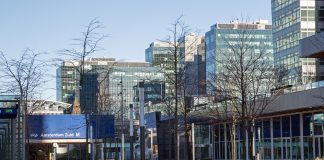Standing high above Kuala Lumpur, looking out over the city’s skyline after a week of nonstop meetings and flights, I had a moment of clarity. The fatigue I felt was more than just the usual exhaustion; it was a reminder of how easily we, as professionals, push ourselves to the brink.
For years, business travel has been a crucial part of many roles, but it’s becoming increasingly clear that the way we handle it needs to evolve. It’s not just about getting the job done anymore; it’s about doing it in a way that supports our well-being and that of our teams.
Burnout is no longer just a buzzword. According to the 2024 Wellness at Work report, employee burnout in Malaysia has surged from 58% in 2022 to 67% in 2024, with more than two-thirds of the workforce feeling overwhelmed by stress, overwork, and exhaustion.
For frequent travellers, the burden starts long before they even set foot on a plane. The tedious process of planning, researching, comparing options, and coordinating logistics can be exhausting in itself.
This pre-trip stress, combined with the pressure to ensure everything runs smoothly, can already take a toll on mental well-being. Once the journey begins, the added challenges of jet lag, tight schedules, and constant movement further drain both mind and body, increasing the risk of burnout.
Why Travel Well-Being Matters
Business travel may appear glamorous, but the reality is often quite the opposite. Beyond the pre-trip planning stress, the physical and mental toll of disrupted sleep, long hours in transit, and the expectation to perform immediately upon arrival is immense.
After a long-haul flight straight into meetings, it’s rare to feel truly refreshed or at your best. This underscores the importance of rethinking how we approach corporate travel, prioritising well-being both before and during the journey to help employees stay balanced and productive.
The solution isn’t as simple as reducing the number of trips. Instead, it’s about rethinking how we approach travel to make it less stressful and more enriching. This includes incorporating well-being values into the entire process.
By partnering with a travel management company (TMC), companies can alleviate the stress of pre-trip planning for HR managers, who are often burdened with organising trips, while also ensuring the well-being of travellers is prioritised.
Through customised travel solutions, such as flexible bleisure arrangements, employees can seamlessly combine business and leisure. Imagine extending a work trip in Paris to include a weekend stay, exploring iconic spots like the Louvre, or inviting a spouse to join once business activities are done.
These tailored options can transform a demanding business trip into a more rejuvenating and fulfilling experience. By integrating these practices into travel programs, companies can significantly reduce burnout and enhance employee satisfaction.
Supporting Employees in a Meaningful Way
Think about it: employees who feel supported are more likely to stay with a company, and those who are well-rested are more productive. It’s a win-win for both the individual and the organisation.
A renowned consulting firm implemented a “disconnect day” policy, encouraging employees to fully disconnect from work during weekends and holidays, which led to improved morale and productivity. Another major firm introduced “Well-being Days,” offering mandatory time off to recharge, resulting in significant reductions in stress and burnout.
At Holiday Tours & Travel, we believe in similar principles. Travel can be part of an employee’s benefit package. For instance, our flexi benefits allow employees to claim travel vacation expenses, such as flights and hotels, when booked through the company.
This not only improves employee satisfaction but also supports their well-being. Additionally, companies can consider utilising budgets traditionally reserved for annual dinners or engagement activities to fund annual or department trips. These experiences foster both team engagement and retention, creating a more rewarding and balanced work environment.
These real-world examples show that creating policies where employees have structured time to recover, especially after long or high-stress work periods, makes a tangible difference. When we provide opportunities for flexibility, such as extending trips for leisure or making travel arrangements more comfortable, we not only reduce stress but also show our teams that their well-being matters.
Rethinking Corporate Travel
We can’t ignore the changing landscape of work. Post-pandemic, many of us are still adjusting to hybrid work models, and the unpredictability of how work will evolve makes it clear that flexibility is key. Travel well-being should be part of this conversation. It’s not a luxury; it’s a necessity in today’s fast-paced environment.
Instead of focusing solely on efficiency, we should also consider how travel can be less draining. With Holiday Tours & Travel’sTravel Safety Promise, we provide comprehensive support from pre-trip planning to on-trip assistance and post-trip follow-up. This includes real-time travel updates, access to rest and relaxation options, and personalised assistance, ensuring travellers are well-supported at every stage of their journey. When we create environments that prioritise well-being, we don’t just work harder—we work smarter.
Looking Ahead – The Future of Travel Wellbeing
We need to accept that the future of work is full of uncertainty. Whether it’s the traditional office setup, fully remote models, or a hybrid approach, no one can predict with certainty what the workplace will look like in the coming years. However, one thing is abundantly clear: the need to invest in employee well-being has never been more critical.
Companies must act now to build workplaces that not only meet the demands of today but are resilient enough to thrive in the uncertainties of tomorrow. Embedding well-being into the core of business travel strategies is crucial for supporting the modern, flexible workforce—whether employees are in the office, at home, or constantly on the move.
Organisations that prioritise and invest in a healthy, engaged workforce are positioning themselves for long-term success. As we navigate the evolving landscape of work—whether it’s office-based, remote, or hybrid—it’s imperative that businesses understand the critical role that well-being plays in employee performance and satisfaction.
Incorporating well-being initiatives into corporate travel strategies is more than a benefit; it is a foundational element necessary for supporting a flexible, dynamic workforce. By embedding these values into their approach, companies can create resilient systems that not only adapt to change but also drive sustained growth and success.
Amy Lee is senior vice president of finance, MICE, people & culture, Holiday Tours & Travel























